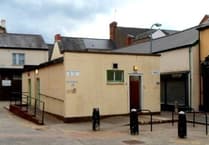Wales’ controversial 20mph policy should be targeted at schools, hospitals and nurseries, the new transport secretary suggested.
Ken Skates, who was appointed to the cabinet last month, told the Senedd there is widespread support for 20mph in areas where children and older people are at risk.
He stressed that ministers want to undertake a “national listening programme” on 20mph, engaging with businesses, communities and citizens across the country.
Mr Skates said: “There is, I believe, a growing consensus in this debate that we can at least build on that 20mph is right around our schools, hospitals, nurseries.”
The transport secretary, who succeeded Lee Waters in Vaughan Gething’s new look Welsh Government, told the chamber ministers must make sure 20mph zones are truly targeted.
New roads
He vowed: “Changes will be done with and for the communities we all serve – with the voice of citizens right at the heart of all we do.”
Mr Skates also signalled a potential change in direction on new roads, emphasising: “We will continue to build new roads.
“Whether that's to address localised congestion, pinch points and poor air quality, to improve safety, or, for that matter, to adapt our road network to the kind of extreme weather that we're now seeing here in Wales with alarming regularity – we will build new roads.”
Responding to a Conservative debate on Wales’ “not fit for purpose” policies, Mr Skates pledged to change the tone of debate on transport.
Natasha Asghar, the Tory shadow transport secretary, said 20mph has proved hugely unpopular, with a record near-half a million people signing a petition to rescind the policy.
‘Limited evidence’
Ms Asghar questioned Welsh Government claims that the policy will save the NHS £92m, saying there is very limited evidence as she called for a detailed breakdown.
Delyth Jewell, Plaid Cymru’s shadow transport secretary, said major change is required as she warned that transport is all too often expensive and difficult to access.
The party’s deputy leader told MSs the price of bus tickets has increased at the same time services are being cut, leaving communities isolated.
Ms Jewell warned that Wales lost out on billions through HS2 as she urged the Welsh Government to challenge UK ministers’ decision through the courts.
She said: “We have paid towards impoverishing ourselves. Neither Sunak nor Starmer sees the need to right that wrong. Westminster will always prioritise Westminster, never Wales.”
‘Modal shift’
Highlighting the climate emergency, John Griffiths stressed the importance of a modal shift from road use to public transport and active travel.
The Labour backbencher said five new railway stations in south east Wales will make a major contribution to easing congestion on the M4.
However, the Newport East MS emphasised that rail infrastructure is not devolved and Wales has only received a “paltry share of investment compared to the rest of the UK”.
Peter Fox, the Conservative MS for Monmouth, reiterated calls for a Chepstow bypass, saying the town is regularly gridlocked with an almost two-mile traffic queue.
He told the chamber: “We need to see the shelved road schemes back on the table to boost the economy and get our congested roads moving once again.”
‘Dire condition’
Labour backbencher Carolyn Thomas argued Wales needs to prioritise investing in existing roads which are in a “dire” condition due to “ever-dwindling” budgets.
The North Wales MS said one council ran out of cash to patch potholes last month.
The Conservative motion also raised concerns about a north-south divide, with £50m allocated to the north Wales metro and more than £1bn to the south Wales metro.
But Mr Skates argued it is not comparing like with like because Wales has powers over lines in the south but rail infrastructure in the north remains the UK Government’s responsibility.
The Tory motion was defeated, 15-36, with Plaid Cymru’s amendment also falling, 10-41, before the motion as amended by ministers was agreed, 27-15 with nine abstensions.




